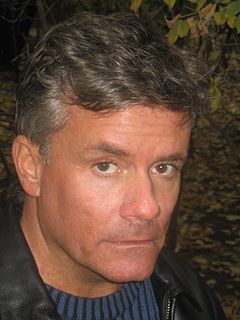A Quote by John Herschel
No doubt the testimony of natural reason, on whatever exercised, must, of necessity, stop short of those truths which it is the object of revelation to make known; still it places the existence and personal attributes of the Deity on such grounds as to render doubts absurd and atheism ridiculous.
Related Quotes
A purpose derived from a false premise - that a deity has ordained submission to his will - cannot merit respect. The pursuit of Enlightenment-era goals - solving our world's problems through rational discourse, rather than through religion and tradition - provides ample grounds for a purposive existence. It is not for nothing that the Enlightenment, when atheism truly began to take hold, was also known as the Age of Reason.
The evil that has resulted from the error of the schools, in teaching natural philosophy as an accomplishment only, has been that of generating in the pupils a species of atheism. Instead of looking through the works of creation to the Creator himself, they stop short, and employ the knowledge they acquire to create doubts of his existence. They labour with studied ingenuity to ascribe every thing they behold to innate properties of matter, and jump over all the rest by saying, that matter is eternal.
God, we are told, is willing to render himself inconsistent and ridiculous, to confound the curiosity of those whom, we are at the same time informed, he desires to enlighten by his special grace. What must we think of a revelation which, far from teaching us any thing, is calculated to darken and puzzle the clearest ideas?
Since nothing can exist that does not fulfil the conditions which render its existence possible, the different parts each being must be co-ordinated in such a way as to render possible the existence of the being as a whole, not only in itself, but also in its relations with other beings, and the analysis of these conditions often leads to general laws which are as certain as those which are derived from calculation or from experiment.
We cannot begin with complete doubt. We must begin with all the prejudices which we actually have when we enter upon the study ofphilosophy. These prejudices are not to be dispelled by a maxim, for they are things which it does not occur to us can be questioned. A person may, it is true, in the course of his studies, find reason to doubt what he began by believing; but in that case he doubts because he has a positive reason for it, and not on account of the Cartesian maxim. Let us not pretend to doubt in philosophy what we do not doubt in our hearts.
What makes fantastic declarations believable is, in part, the vehemence with which they're proffered. Again, in the world of spirituality as well as of pop psychology, intensity of personal belief is evidence of truth. It is considered very bad form - even abuse - to challenge the veracity of any personal testimony that might be offered in a twelve-step group or on a talk show, unless the testimony itself is equivocal... Whatever sells, whatever many people believe strongly, must be true.
When we play music we describe the echo the tableau of natural forms, their shapes and arrangements, as uncovered by the composer's imagination, which yet must be filtered through our own. There is no other way. And in acknowledging this tableau, this revelation, we must "hesitate", we must doubt, as the composer doubted, for no valid creation can issue unscarred by doubt, by that vast flux of wonder which precedes the construction of being.
The starting-point and chief principle of every science, and hence of theology also, is not only methodical doubt, but positive doubt. One can believe only what one has perceived to be true from reasonable grounds, and consequently one must have the courage to continue doubting until one has found reliable grounds to satisfy the reason.
This is what writers mean when they say that the notion of cause involves the idea of necessity. If there be any meaning which confessedly belongs to the term necessity, it is unconditionalness. That which is necessary, that which must be, means that which will be, whatever supposition we may make in regard to all other things.
He would be guilty of mortal sin, because he exposes himself to the danger of grievously offending God. Hence, before he acts he must lay aside the doubt; and if he has not hitherto done so, he must confess it, at least, as it is before God. But the scrupulous, who have doubts about everything, must follow another rule: they must obey their confessor. When he tells them to conquer their doubts, and to act against scruples, they should obey with exactness; otherwise they will render themselves unable and unfit to perform any spiritual exercise.
What if all those strange and unexplainable bends in history were the result of supernatural interference? At which point I asked myself, what's the weirdest most eccentric historical phenomenon of them all? Answer:the Great British Empire. Clearly, one tiny little island could only conquer half the known world with supernatural aid. Those absurd Victorian manners and ridiculous fashions were obviously dictated by vampires. And, without a doubt, the British army regimental system functions on werewolf pack dynamics.
The very reason why we object to state ownership, that it puts a stop to individual initiative and to the healthy development of personal responsibility, is the reason why we object to an unsupervised, unchecked monopolistic control in private hands. We urge control and supervision by the nation as an antidote to the movement for state socialism. Those who advocate total lack of regulation, those who advocate lawlessness in the business world, themselves give the strongest impulse to what I believe would be the deadening movement toward unadulterated state socialism.



































